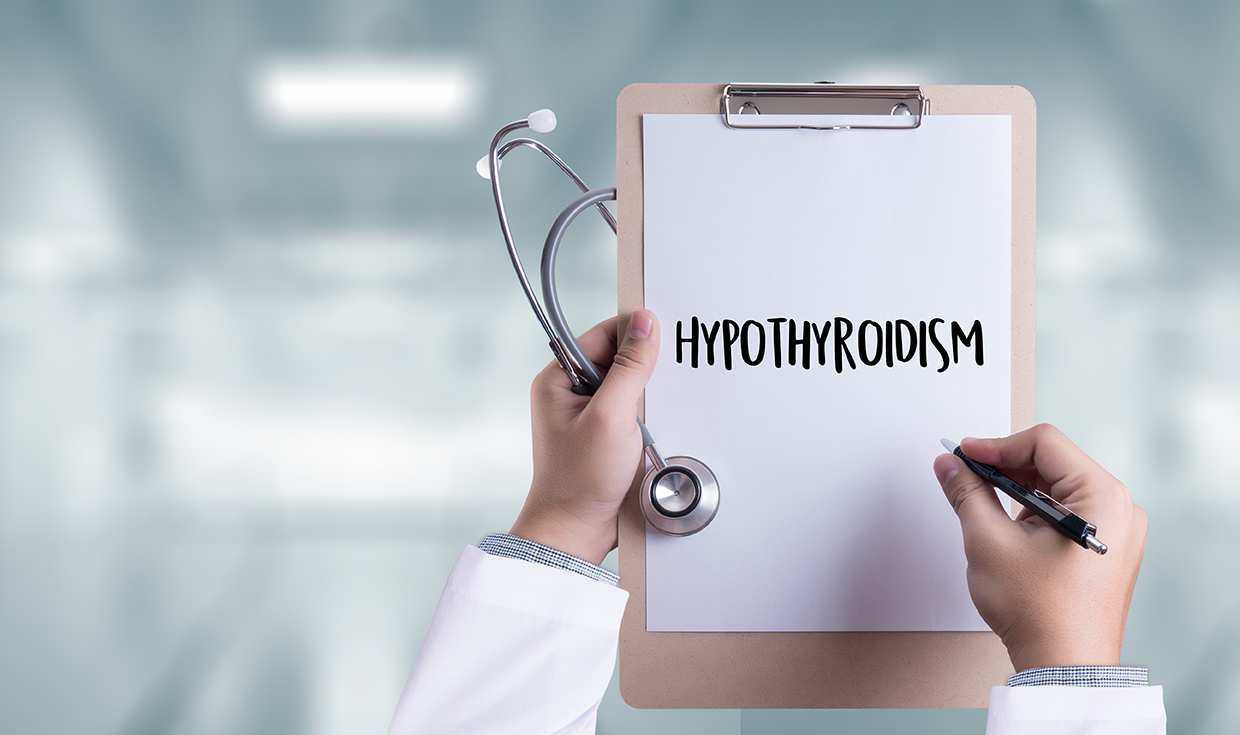Medical practitioners attribute a lot of ailments and disorders to thyroid malfunction. Thyroid gland is responsible for the body’s metabolism and many other vital functions such as heart rate, body temperature etc.
Any malfunction of thyroid glands is linked to issues such as:
- Overweight or underweight
- Infections
- Poor immunity
- Fatigue
- Depression
- Lack of disease resistance to common infections like colds
- Endocrinal problems like type 1 diabetes, type 2 diabetes or gestational diabetes, PCOS and other disorders
As thyroid gland diseases or malfunction carries other co-occurring conditions, it is natural for you to have many questions. Here are some of the most common questions asked by people with hypothyroidism.
What is hypothyroidism?
Thyroid is an endocrine gland situated in the throat. Like all glands and organs of the human body, thyroid gland too has its set of functions. Hypothyroidism is underactive functioning of the thyroid gland.
It means that the hormone produced is insufficient for complete and regular functioning. Diabetes is one such disorder which is caused by hypothyroidism. Other co-occurring conditions could be:
- The ability to tolerate cold
- Fatigue/feeling tired
- Constipation
- Depression
- Weight gain
- Hair loss
Does hypothyroidism cause diabetes?
Type 1 diabetes, type 2 diabetes, and gestational diabetes occur because of lack of insulin to process the sugars and carbs ingested by the body. Hypothyroidism causes decreased sensitivity to insulin thereby increasing sugar levels in the blood. The body mass index of a person is also elevated causing obesity which is a prime cause of diabetes.
What are the symptoms of hypothyroidism?
- Unwarranted fatigue and weakness
- Too much of weight gain and difficulty in losing weight
- Coarse, dry hair and hair loss
- Dry skin
- Sensitivity to cold
- Muscle cramps and aches and pains
- Constipation
- Irritability and depression
- Loss of memory
- Irregular menstruation
- Decreased libido
What causes hypothyroidism?
Hypothyroidism can be a result of over treatment of hyperthyroidism, an underactive thyroid gland or initial overactive thyroid gland followed subsequently by underactive thyroid glands.
- Any exposure of the neck to radiation
- Lack of iodine in diet
- Thyroid surgery
- Some medications can cause hypothyroidism
What are the risk factors for hypothyroidism?
A person over the age of sixty is prone to hypothyroidism and consequently type 2 diabetes. Women are more susceptible than men affecting their sugar levels and fertility. Autoimmune diseases are the main factors of hypothyroidism.
Risks of hypothyroidism
Age is a big risk factor. As one ages, there is a complete slow down which also effects hypothyroidism. Women are significantly more susceptible to hypothyroidism than men. Other risk factors include:
- Family history of thyroid disorders
- Autoimmune diseases like Hashimoto’s thyroiditis
- Thyroid gland surgery
- Disorders of the pituitary gland
- Congenital diseases
- Celiac disease
- Pregnancy
How to diagnose hypothyroidism?
All it takes is a simple blood test to determine the levels of the thyroid hormone. Normally, T3, T4, and TSH (Thyroid-stimulating hormone) are tested and correlated by a diagnostic lab. There is no home testing unlike in diabetes where blood sugar levels can be monitored and controlled from home.
What is the best treatment for hypothyroidism?
After tests and assessment, an endocrinologist will prescribe oral medications. These medications will improve thyroid secretion to reach normal levels and treats hypothyroidism and related issues like diabetes.
What is the best diet for hypothyroidism?
Iodized salt is a must. Seafood, dairy products, eggs, legumes, and nuts are beneficial. Since these foods are low in carbs they also control sugar levels which can otherwise increase due to insulin sensitivity.
What are the foods to avoid in hypothyroidism?
Goitrogenic are foods which aid in enlarging the thyroid gland. Foods such as soy products, certain fruits, nuts, and vegetables should be avoided. A nutritionist or an endocrinologist can best advice on foods to take and avoid.
What levels suggest hypothyroidism?
The normal range of TSH levels is 0.4 to 4.0 milli-international units per liter (mIU/L). Levels lower than this is considered as hypothyroidism.
What is the effect if hypothyroidism is left untreated?
The thyroid gland can get enlarged greatly turning to Goiter. Other complications like cardiovascular issues, kidney and liver malfunctions, effect on nervous system, and complicated pregnancies arise (in case of pregnant women). These complications are common to diabetes also. In as much, it can safely be said that hypothyroidism can cause diabetes and related problems.
What are the natural remedies of hypothyroidism?
Selenium supplementation is a good remedy for hypothyroidism. A sugar-free, gluten-free diet is very beneficial. Vitamin B, B12 are also very important. A nutritionist can advise on the diet to naturally remedies of hypothyroidism.
How to prevent hypothyroidism?
Stop smoking. Guard the neck during X-rays. Avoid coffee and soy products. Exercise can stimulate metabolism and help reduce depression caused by weight gain which is a symptom of hypothyroidism. This also reduces the risk of diabetes.
Does hypothyroidism affect pregnancy?
Much like diabetes, hypothyroidism can cause infertility in women. In case a woman conceives, hypothyroidism could cause a miscarriage.
It is always a good option to have regular health check at every age. In the younger ages, disorders like hypothyroidism, diabetes, and many others can be diagnosed and treated to lead a normal healthy life. Apollo Sugar Clinics has an extensive panel of diabetologists, endocrinologists, nutritionists and dieticians to advise on all health issues.












